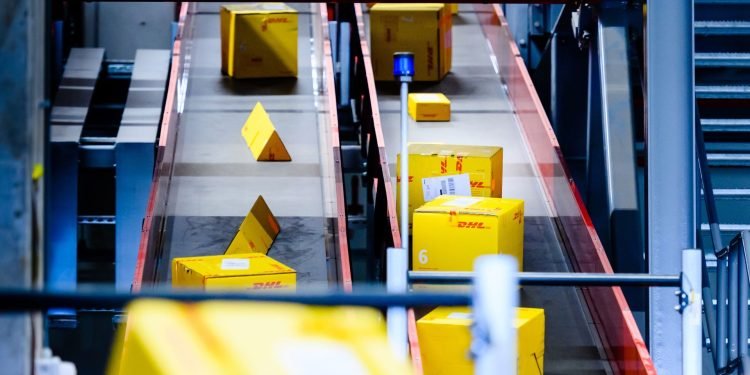By Maria Kalamatas | The Logistic News
In a development that has caught e-commerce exporters by surprise, DHL Express has temporarily halted all B2C shipments to the United States valued above $800, effective April 21, as it adjusts to new compliance demands under evolving U.S. customs protocols.
The move, which affects hundreds of thousands of high-value parcels per week, is being described by industry insiders as one of the most consequential express network decisions since the introduction of Section 321. While shipments under the $800 de minimis threshold continue uninterrupted, the pause for higher-value parcels underscores growing regulatory tension between rapid delivery expectations and tightening customs enforcement.
DHL Cites “Enhanced Scrutiny” and Regulatory Alignment
In a statement to The Logistic News, DHL confirmed that the suspension was made “in response to increasing complexity in U.S. de minimis enforcement and recent clarification from CBP requiring more robust data handling, origin declaration accuracy, and real-time parcel traceability.”
A DHL spokesperson emphasized that the move is precautionary and temporary:
“We are working closely with U.S. Customs and Border Protection to refine our systems and resume compliant high-value B2C services in the shortest time possible.”
The announcement applies globally, affecting exports from Asia, Europe, Latin America, and other major fulfillment zones. It does not apply to B2B shipments or parcels valued below the $800 limit.
For Sellers, a Delivery Model Upended
The announcement has already disrupted operations for cross-border merchants in sectors like consumer electronics, luxury apparel, wellness devices, and specialty household goods—where per-unit values often exceed the $800 threshold.
E-commerce platforms and fulfillment providers across Hong Kong, Shenzhen, Frankfurt, and Rotterdam are scrambling to reroute inventory to local U.S. distribution partners or to convert international orders into B2B transactions to stay operational.
“Our U.S. conversion funnel is entirely reliant on 48-hour delivery,” said the COO of a Munich-based direct-to-consumer brand. “Without DHL, our margin model—and our customer promise—just broke overnight.”
Regulatory Background: The De Minimis Debate
Section 321 has allowed millions of low-value packages to enter the U.S. without duties or formal customs clearance. But the volume, scale, and perceived misuse of de minimis channels have drawn fire from lawmakers, regulators, and domestic manufacturers.
Recent reports show that some sellers engage in “shipment splitting” to stay under the $800 cap, or undervalue goods to avoid tariffs. U.S. CBP has begun issuing guidance requiring more comprehensive product-level data, transaction transparency, and consignee accuracy for parcels nearing or exceeding that threshold.
“Carriers are increasingly caught in the middle between efficiency and enforcement,” said a senior trade attorney in Washington. “DHL is the first to act publicly—but it won’t be the last.”
Industry-Wide Implications
While DHL has not offered a specific reinstatement date, sources indicate that technical and compliance system upgrades are underway. Customs brokers and compliance professionals say similar moves may soon be made by other major express players.
“This is a stress test for the express logistics model,” said a global freight analyst. “It proves that fast isn’t free—and sometimes, it’s not even possible.”
What’s Next?
Until the suspension is lifted, high-value B2C sellers have three options:
-
Shift fulfillment to U.S.-based 3PLs or warehouses
-
Reclassify shipments under B2B rules with the proper invoicing
-
Delay delivery until DHL resumes service with updated systems
DHL has promised regular updates to its customers and partners as the situation evolves. But the impact is already being felt far beyond the company’s network.
For an industry built on the promise of global instant gratification, the return of customs complexity may be the new cost of trust.























